Opinion
The Coup That Wasn’t — And the Cry Behind the Rumour
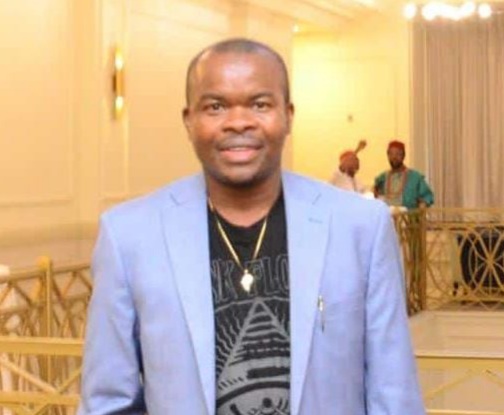
The Coup That Wasn’t — And the Cry Behind the Rumour
By Boniface Ihiasota
Every time Nigeria sneezes, its diaspora community catches a chill. That was the feeling last week when whispers of a coup plot in Nigeria began to swirl through social media timelines and WhatsApp groups. From London to Toronto, Houston to Johannesburg, the rumour spread faster than fact. Suddenly, Nigeria, the Africa’s most populous democracy was trending for the wrong reasons again.
The Defence Headquarters (DHQ) has since dismissed the reports as false, describing them as a “malicious fabrication” intended to create fear and undermine confidence in the military and government. According to its statement, there was no coup attempt, no arrests of officers, and no link between the cancellation of activities marking Nigeria’s 65th Independence anniversary and any alleged plot. The military, it insisted, remains “loyal to the Constitution and committed to democratic governance.”
End of story? Not quite.
Because even from the diaspora, one could sense the unease behind the denial. It may not necessarily about tanks on the streets, but about the growing tension that makes such rumours believable in the first place.
Let’s face it: coup rumours don’t thrive in healthy societies. They feed on public frustration — on anger about fuel prices, inflation, insecurity, and a sense that government has stopped listening. The fact that Nigerians even found the rumour plausible says more about the fragile state of trust than about any actual mutiny.
Those of us watching from afar couldn’t help but wince at the déjà vu. We’ve been here before. In the late 1980s and 1990s, when military rule cast a long shadow over Nigeria, the diaspora carried two emotions at once: fear for those at home, and shame before the world. The word “Nigeria” became synonymous with instability. Many of us had to explain over and over again that our homeland was not defined by coups, corruption, or chaos.
So when another coup story surfaces, even if false, it scrapes old wounds. It reminds Nigerians abroad of the fragile threads that still bind our democracy.
Yet, the most striking part of this latest rumour was not that it happened, but that people believed it could. That tells you everything you need to know about the crisis of confidence in governance today.
In conversations among Nigerians abroad, one sentiment keeps recurring: people are not afraid of soldiers with guns; they are afraid of politicians without conscience. When citizens feel unprotected, unheard, and uncertain of tomorrow, democracy begins to lose its moral weight. And when democracy no longer delivers hope, people start looking, even unconsciously, toward the men in uniform again.
That is the real danger.
The Defence Headquarters deserves commendation for responding swiftly and firmly to dispel the misinformation. But beyond rebuttals, government must confront the deeper issue: the erosion of public trust. For a population struggling under economic hardship and rising insecurity, words alone cannot restore faith. Action must.
Diaspora Nigerians understand that democracy, though messy and imperfect, is still better than the clean efficiency of dictatorship. We remember what coups bring — silence, fear, and stagnation. We know that nations rise not by the barrel of a gun but by the ballot of a people. But for that truth to hold, governance must be seen to serve the governed.
What many Nigerians abroad long for is not perfection but progress, that is, a system that listens, that works, that corrects itself when wrong. The rumour of a coup may have been false, but it emerged from a place of real despair, where hunger meets hopelessness, and where patriotism is tested daily by power outages, inflation, and broken promises.
If Nigeria’s leaders truly want to make coup rumours impossible, they must make democracy meaningful again. They must give citizens a reason to defend the system, not merely endure it.
As the Defence Headquarters reaffirmed its loyalty to democracy, it also indirectly reminded us that the burden of defending the nation’s stability rests not only on soldiers but also on statesmen. Stability grows when justice is fair, when opportunity is shared, and when leadership carries empathy, not arrogance.
From where we stand abroad, Nigeria’s resilience remains its saving grace. Our people have survived everything. Be it coups, civil wars, corruption, and the failures of leadership and yet they remain unbroken. But resilience is not infinite. It must be rewarded with responsive governance and renewed hope.
So, while this coup rumour may fade into the archive of false alarms, the message it carried should not be ignored.
Nigeria doesn’t need soldiers in power. It needs leaders who remember that power is service.
And as we in the diaspora watch, pray, and sometimes weep for our homeland, we hold on to one truth that democracy, though bruised, must never be buried. Because once the sound of marching boots replaces the noise of debate, the dream of a better Nigeria will have been postponed again.
Analysis
Insecurity: Defence, Development, and Duty, by Alabidun Shuaib AbdulRahman
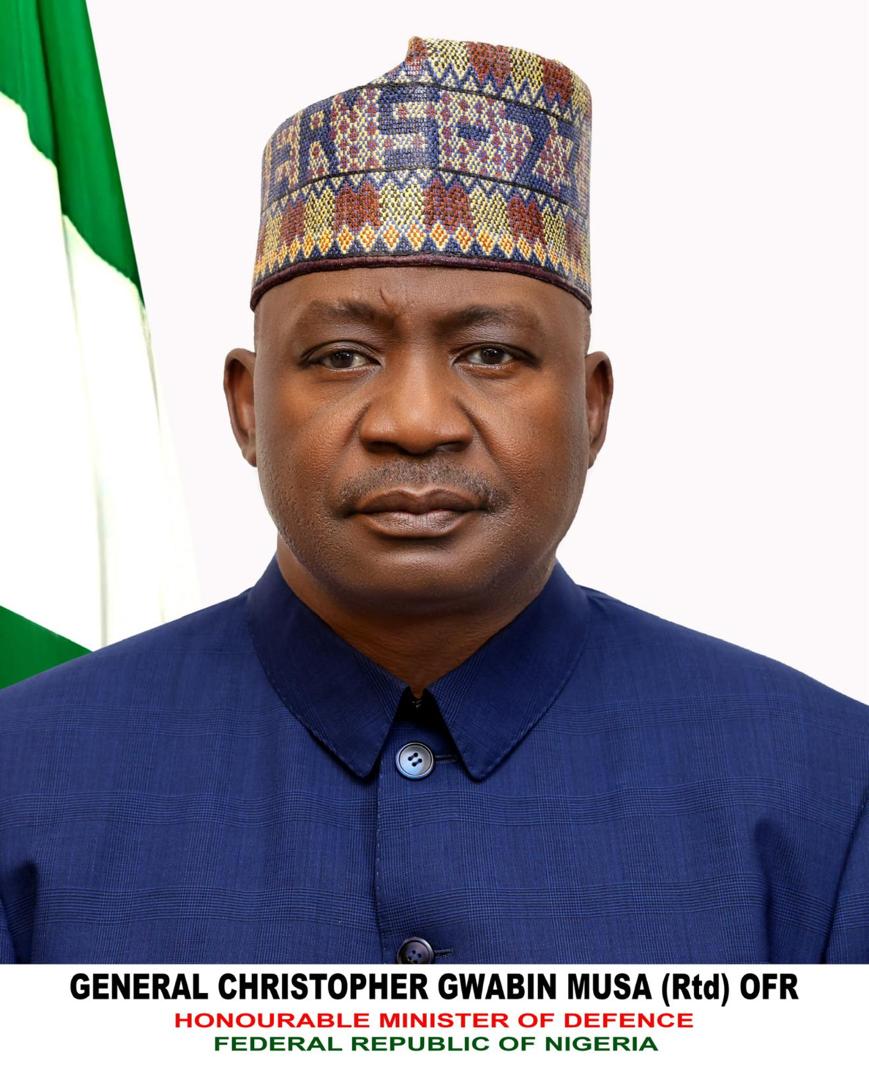
Insecurity: Defence, Development, and Duty, by Alabidun Shuaib AbdulRahman
Last week, this column examined the need for Nigeria to go beyond the symbolic appointment of a Defence Minister and to embrace a more strategic, coherent and results‑oriented national security policy. With the Honourable Minister of Defence, General Christopher Gabwin Musa (rtd) now sworn in and formally at his desk, the expectations of Nigerians have understandably risen. Citizens are no longer satisfied with promises that go unfulfilled, rhetoric without measurable results, or military engagements that deliver ephemeral victories without sustainable impact. The scale of the challenge is immense, and to effectively confront insecurity in all its dimensions requires a realistic blueprint that is rooted in global experience but fully adapted to our domestic realities.
The current insecurity landscape in Nigeria is not confined to a single theatre of operation. It encompasses violent extremism in the Northeast involving Boko Haram and Islamic State West Africa Province (ISWAP) factions; widespread banditry and cattle rustling across the Northwest; mass kidnappings for ransom that have spread into Central and Southern states; maritime piracy and sea robbery; farmers‑herders clashes in the Middle Belt; and criminal syndicates operating along transport corridors. These threats are not isolated, and they share common vectors that exploit governance gaps, economic deprivation, porous borders, and community distrust of state institutions. The sheer breadth of this insecurity crisis has made it clear that conventional, ad hoc responses will not suffice. What Nigeria requires now is a comprehensive, intelligence‑driven approach that integrates defence, internal security, economic development, and community empowerment.
The experience of other countries that have confronted similar threats offers instructive lessons. Nations that have made progress in countering terrorism and organised crime have done so by strengthening intelligence structures, integrating technology into security operations, building trust with local communities, and coordinating interagency responses. The United Kingdom’s counter‑terrorism framework, known as CONTEST, was first developed in 2003 by Sir David Omand at the Home Office in response to the 2001 9/11 attacks. It has been revised in 2006, 2009, 2011, 2018, and most recently in July 2023 to address evolving threats. CONTEST’s four pillars — Prevent, Pursue, Protect and Prepare — aim to safeguard UK citizens and infrastructure. Between 2018 and 2023, nine terrorist attacks were declared in the UK, resulting in six deaths and about 20 injuries, while law enforcement agencies disrupted 39 late-stage terrorist plots before they could be executed. The Counter-Terrorism and Security Act 2019, introduced by then Home Secretary Sajid Javid and receiving Royal Assent on 12 February 2019, further strengthened UK powers at ports, borders, and in counter‑terrorism investigations. These measures reiterate the importance of intelligence integration and pre-emptive action, lessons highly relevant to Nigeria’s own security planning.
Spain’s experience with ETA (Euskadi Ta Askatasuna) provides another instructive example. ETA was responsible for hundreds of deaths over decades before declaring a definitive cessation of armed activity in 2011 and formally dissolving its structure in May 2018. French and Spanish security cooperation played a decisive role in degrading ETA’s networks throughout the 2000s and 2010s, alongside judicial and intelligence reforms after the 2004 Madrid train bombings. Historical estimates attribute between 830 and 857 killings to ETA, illustrating both the human cost of insurgency and the impact of sustained counter-terrorism measures led by state intelligence agencies. Spain’s Ministry of Interior and Counter-Terrorism Intelligence Centre continues to coordinate post-ETA security strategies, reflecting the necessity of ongoing vigilance even after apparent victories.
Saudi Arabia has also demonstrated the impact of a coordinated, high-level counter-terrorism approach. In 2005, the Kingdom hosted the first International Counter-Terrorism Conference in Riyadh, attended by over 55 countries, resulting in the establishment of the United Nations Counter-Terrorism Centre (UNCCT) with Saudi financial support of US$110 million to assist countries in combating terrorism. Further, in February 2014, King Abdullah issued a royal decree reinforcing counter-terrorism measures, stating that participation in extremist or terrorist activities would not be tolerated, reflecting a strong political commitment to national and global security. According to the Global Terrorism Index, Saudi Arabia’s terrorism impact score declined significantly over the past decade, demonstrating the effectiveness of combined intelligence, legislative, and operational measures.
The Global Terrorism Index (GTI), published annually by the Institute for Economics and Peace, provides a reliable benchmark for assessing global terrorism trends. The 2025 GTI reported that 66 countries recorded terrorist attacks in 2024, up from 58 the previous year, indicating the persistent and shifting nature of the threat. The Sahel region accounted for more than half of global terrorism-related deaths, while lone-wolf and extremist-inspired attacks increased in Western countries. These data underline that counter-terrorism outcomes depend on sustained political will, integrated agency action, and community engagement, lessons, again, that are directly applicable to Nigeria.
In Nigeria, security responses have frequently been reactive. Major operations are mounted after attacks have occurred, rather than through proactive disruption of networks and early interdiction of planned activities. To shift this paradigm, the Defence Ministry under General Christopher Gabwin Musa must prioritise the establishment of a National Intelligence Fusion Centre. Such a centre would integrate data from the military, police, Department of State Services, National Security Adviser’s office, customs, immigration, and digital surveillance units into a single analytic platform. This would enable real-time situational awareness, more accurate threat forecasting, and faster decision-making. A national counter-terrorism database accessible to all relevant agencies, with robust legal protections for privacy and civil liberties, would serve as the cornerstone of this integrated architecture.
Border security is another area where strategic emphasis must be placed. Many militant and criminal groups operating in Nigeria exploit porous borders with neighbouring countries. These transnational linkages facilitate the movement of fighters, weapons, contraband, and illicit funds. The Economic Community of West African States (ECOWAS) has recognised this regional dynamic and proposed a 5,000-member standby force to respond rapidly to insecurity across member states at an estimated first-year cost of $2.61 billion. Nigeria must not only support and participate in regional frameworks but must also strengthen its own border control mechanisms. Smart border technologies such as biometric identification systems, integrated customs and immigration databases, and joint patrols with neighbouring states would make significant inroads into restricting unauthorised movements. Additionally, aerial and satellite surveillance over key migratory and smuggling corridors would enhance the country’s ability to detect and intercept threats before they materialise. Stronger border security disrupts the flow of armed groups, weapons, and contraband while protecting economic zones and encouraging lawful trade.
A critical deficiency in Nigeria’s current security approach has been the disconnect between national forces and local communities. In areas affected by violent extremism and banditry, many communities feel abandoned or marginalised. This creates fertile ground for violent actors to gain influence by positioning themselves as protectors or providers of services. The rise of community security networks such as the Civilian Joint Task Force in the Northeast and Amotekun in the Southwest offers a promising model for localised engagement. These groups have provided valuable situational insights, early warning reporting, and rapid response capabilities. But their informal status limits their effectiveness. What is needed is a nationally coordinated framework that formally integrates community security structures into the broader security architecture, with clear legal status, standardised training, dedicated resources, and oversight mechanisms that ensure accountability and respect for human rights. Empowered, community-embedded security actors can act as force multipliers, strengthening the reach of formal security agencies and building trust between citizens and the state.
Technology must be at the heart of Nigeria’s future security efforts. Modern conflicts are increasingly shaped by information, surveillance, and real-time connectivity. Drones, Intelligence Surveillance and Reconnaissance (ISR) platforms, secure communication networks, and artificial intelligence tools for pattern detection can transform the operational footprint of security agencies. For a country with vast territories that are difficult to monitor through ground forces alone, investing in long-endurance drones and satellite imagery agreements would provide crucial surveillance coverage. Integrating AI-enabled systems to analyse movement patterns, social media signals, and financial flows linked to criminal networks can alert authorities to emerging threats before they materialise into attacks. These investments should be accompanied by specialised training for personnel to interpret and act on the data generated by these systems. In this way, technology amplifies human capacity and creates a more agile, responsive defence posture.
Civil-military relations also demand urgent attention like never before. The pattern of military engagements that yield high collateral damage or disregard human rights has undermined public confidence. Nigeria’s military must adopt what is often referred to in strategic circles as a “hearts and minds” approach. This means that operations should be conducted with strict adherence to the rule of law, with proactive measures to minimise harm to civilians, and with structured engagement mechanisms that involve traditional leaders, local influencers, and civil society organisations.
Socio-economic development must be integrated into the security agenda. One of the principal drivers of recruitment into violent groups is the lack of opportunity for youth. Unemployment remains high, especially in regions most affected by insecurity. If young people have little access to quality education, job opportunities, or even a sense of hope for the future, the appeal of violent groups offering financial incentives and a sense of belonging increases. Therefore, national security policy must be coordinated with economic planning. Ministries of Defence, Interior, Youth Development, Finance, and regional development agencies must work with the private sector to design vocational training programmes, micro-enterprise support schemes, agricultural revitalisation initiatives, and infrastructure projects that create sustainable livelihoods in vulnerable communities. Security will not be sustainable where economic despair persists.
Transparency and accountability in the security sector are also essential. Nigerians are weary of high defence budgets that appear disconnected from tangible results. Defence spending must be accompanied by transparent reporting, independent oversight, and measurable performance outcomes. The creation of parliamentary defence committees with access to classified expenditure details has precedent in mature democracies and can be adapted to Nigeria’s context. Civil society organisations, human rights bodies, and the media must be permitted, within legal frameworks, to scrutinise defence policies and operations. When citizens see that resources are managed responsibly and that abuses are addressed decisively, trust in the security apparatus increases, and cooperation improves.
Nigeria’s role in regional security cooperation cannot be overstated. The threats that afflict the country are not confined to its borders. Maritime piracy in the Gulf of Guinea, cross-border banditry, extremist networks with regional affiliates, and smuggling syndicates operate across national frontiers. Nigeria must lead, not only in rhetoric but in structured collaborative action through regional bodies such as ECOWAS and the African Union. Joint training programmes, intelligence sharing agreements, coordinated patrols, and unified response protocols can dramatically improve collective capacity to deal with transnational threats. However, such cooperation must be accompanied by clear understanding of command responsibilities, funding mechanisms, and the primacy of human rights in operational engagements.
Within the next twelve to twenty-four months, a well-executed security blueprint based on the principles outlined can deliver measurable improvements. Reduced terror-related fatalities, fewer mass kidnappings, restored confidence in security forces, and renewed economic activity in previously conflict-impacted areas would serve as tangible indicators of progress. Most importantly, strengthened cooperation between federal and state security agencies and enhanced trust with communities will lay the foundation for longer-term stability.
Nigeria stands at a crossroads. The Defence Ministry now has the opportunity to transform the nation’s security architecture, not through isolated campaigns or fleeting headlines, but through a sustained, integrated, people-centred strategy. Ending insecurity in Nigeria is not merely a Defence Ministry task. It is a national imperative that demands political will, inter-governmental coordination, community partnership, and structural reform. The people of this country deserve not merely promises but results. It is time for leadership that does more than respond to insecurity; it is time for leadership that contains, mitigates, and ultimately overcomes it. Nigeria’s future depends on it.
Analysis
Beyond A Defence Minister, by Alabidun Shuaib AbdulRahman
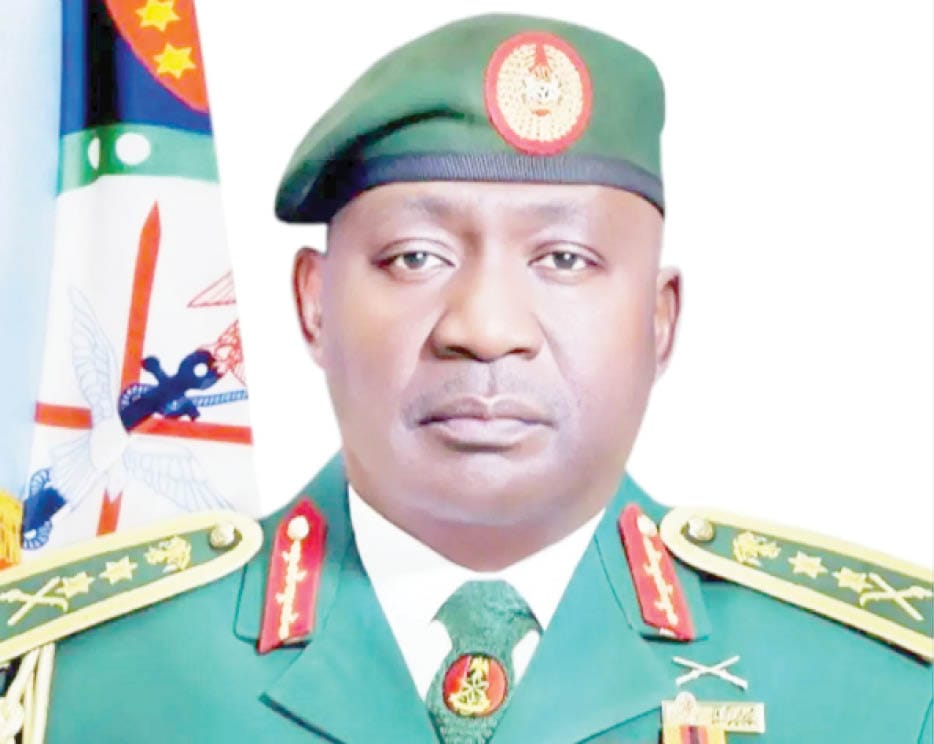
Beyond A Defence Minister, by Alabidun Shuaib AbdulRahman
When the name of General Christopher Gwabin Musa (rtd) was announced as the new Minister of Defence for Nigeria, many citizens did not cheer — they exhaled. In a country where hope often flickers faster than security, each new appointment carries the burden of history. Nigerians are tired of seeing ministers swap titles, while insecurity deepens, kidnappings proliferate, and communities collapse.
To understand the challenge he inherits, one must revisit the history of Nigeria’s Defence Ministry from 1999 onward. The first in the Fourth Republic was retired Lieutenant-General Theophilus Yakubu Danjuma, who assumed office in June 1999 after democracy was restored. Danjuma’s appointment was meant to restore honour and discipline to a military tainted by years of dictatorship. His immediate task was political: reassure Nigerians that the Armed Forces would no longer be politics by another name, and help transition from military rule to civilian governance. He helped steer budgets toward rebuilding and re-equipping, initiating what was then a credible attempt at professionalising Nigeria’s armed forces. But those efforts addressed conventional defence, not the emerging internal threats. Danjuma’s tenure ended in May 2003 with the civilianization of leadership but by then the foundations for internal security challenge management remained shallow.
In July 2003, Rabiu Musa Kwankwaso became Defence Minister under President Obasanjo’s second term, and thus inaugurated an era of civilian political stewardship at the Ministry of Defence. His time, stretching to May 2007, coincided with the earliest stirrings of what would become insurgency. Boko Haram was still marginal, largely ignored by national security architecture focused on external defence. Kwankwaso’s strengths lay in politics and governance, but not in shaping a doctrinal shift toward internal security or insurgency response. The defence ministry under him remained oriented toward traditional armed-forces metrics of equipment, formal deployments, diplomacy while Nigeria lurched toward a reality that required intelligence-driven, community-rooted internal security frameworks.
When Mahmud Yayale Ahmed took over in July 2007 and served until September 2008, the writing was already on the wall. Boko Haram had begun to emerge visibly, yet the response remained bureaucratic. Yayale Ahmed brought civil-service credentials and an administrative mindset, not military temperament. The ministry managed procurement, sustained the flagging morale of the forces after years of underfunding, but did little to evolve institutional capacity for asymmetric threats.
By late 2008 and early 2009, under Shettima Mustapha and subsequently the retired Major-General Godwin Abbe, Nigeria entered what would become its darkest chapter of internal insecurity. In 2009, Boko Haram erupted violently. Abbe, a former soldier turned politician, presided during the crescendo of that crisis. The response was drastic but superficial: raids, crackdowns, mass arrests, but little reckoning with root causes. Communities were ravaged, trust was eroded, animosity deepened between the security forces and civilians. The violence may have been met with force, yet the underlying grievances, intelligence failures and governance vacuums were never addressed. The result was predictable: suppression bred resentment, insurgency morphed and scattered, later to resurge with renewed vigour.
When the baton passed to civilian ministers Adetokunbo Kayode (2010–2011), Haliru Mohammed Bello (2011–2012), and Olusola Obada (2012–2013), Nigeria sank deeper into chronic internal instability. Their tenures focused largely on procurement, revitalizing weapon stocks and administrative reshuffles, rather than systemic overhaul. There were no comprehensive reforms of policing, no robust intelligence-sharing across agencies, no serious investment in community-based early-warning or conflict-prevention mechanisms. Some may have tried to manage manpower, restructure departments or buy equipment, but the enemy had changed: asymmetric war, civilian-targeted violence, kidnapping rings, banditry, communal conflicts. The Ministry remained geared for conventional threats. As a result, Nigeria drifted.
A temporary caretaker period under Labaran Maku (2013–2014) barely registered any shift. Then came a moment of cautious optimism. Aliyu Mohammed Gusau, whose career spanned multiple security and intelligence roles, was appointed Defence Minister in March 2014. His background and reputation suggested a possible turning point: here was a man who understood threats beyond the battlefield. He attempted, in the brief span he held office, to emphasise intelligence coordination, inter-agency cooperation, and reform of structural leakages. But insurgency had already scaled across regions; Boko Haram had splintered, and the patience and capacity were thin. Gusau’s efforts lacked political depth and time. When his tenure ended in May 2015, so too did the hopes of seeing a decisive shift from reactive force to preventive security architecture.
Under subsequent ministers Mansur Mohammed Dan-Ali (2015–2019) and retired Major-General Bashir Salihi Magashi (2019–2023), the tendency again was toward kinetics, procurement, routine operations — heavy-handed responses to terror strikes, bandit raids, kidnappings. The Armed Forces regained some currency; there were operations, there were “victories,” and sometimes media reports of dislodged cells or rescued hostages. But the casualty was strategic consistency. The underlying problems: weak policing institutions, uncoordinated intelligence between state and federal agencies, porous borders, and a civilian security vacuum. Without credible law enforcement reforms, social rehabilitation and community engagement, cleared zones relapsed. Violence remained endemic.
When President Bola Ahmed Tinubu picked Mohammed Badaru Abubakar, a former two-term governor as Defence Minister in August 2023, many hoped that his executive political experience would at last shapeshift national security policy. But reality proved more unforgiving than expectation. By November 2025, Nigeria had witnessed mass kidnappings, schoolchildren abducted en masse, rural communities under siege, and public confidence crumbling. On November 26, President Tinubu declared a nationwide security emergency, ordering mass recruitment into police and army ranks and authorizing new deployments of forest guards to flush out terrorists and bandits from remote hideouts. The aim was to inject manpower; but as many analysts warned, manpower without structural reform is like pouring water into a leaking pot. On December 1, 2025, Badaru resigned reportedly on health grounds.
The very next day, on December 2, President Tinubu nominated retired General Christopher Gwabin Musa as Minister of Defence. Musa had served as Chief of Defence Staff from 2023 until October 2025, when he was relieved in a wide-ranging military shake-up. His record is impeccable: commissioned as Second Lieutenant in 1991 after graduating from the Nigerian Defence Academy, Musa rose steadily through command ranks, served in key operational theatres, including as Theatre Commander in counter-insurgency campaigns and won the Colin Powell Award for Soldiering in 2012.
This appointment represents more than a change of guard; it presents a crossroads. For generations, Nigeria’s Defence Ministry oscillated between procurement-focused bureaucracy and reactive operations. The missing link was always a coherent, nationwide internal security doctrine, one that recognises terrorism, banditry, kidnapping, communal wars and urban criminality as equal or greater threats than cross-border war. Musa may be the man with the credentials; but credentials do not automatically translate to success. For that, he will need more than a uniform, he will need vision, political courage, and structural reengineering.
First, intelligence in Nigeria has long been a patchwork of agencies: military intelligence, police Special Branch, state-level vigilante networks, local community informants, and often unofficial actors. Every Defence Minister since 1999 has inherited this fragmentation. Even when ministers like Aliyu Gusau explicitly prioritized intelligence reform, they lacked either the time, political backing, or institutional leverage to bind these threads into a functional national network. Under Musa, Nigeria must build a real Intelligence Fusion Centre, statutory in law, resourced, and empowered to gather, analyse, and share data across all security agencies. It should not be another office with flowery titles; it must be the beating heart of Nigeria’s security architecture.
Second, Nigeria’s policing and internal security apparatus remain dangerously under-developed. The police are overstretched or mis-deployed; conventional policing capacities are weak; law enforcement is uneven across states or non-existent in many rural areas. In effect, the military ends up policing civilians, a recipe for human rights violations, community alienation, and cycles of violence. Musa must use his credibility both as military man and now Defence Minister to push for statutory police reform, to support state-level policing initiatives, and to redefine roles: the military defends the country externally and responds to exceptional internal crises; the police and civil security agencies maintain daily law enforcement and community protection. That might require political negotiation with governors and lawmakers.
Third, Nigeria must stop treating security as a matter of fire-power and weapons. As urban kidnappings show, and as rural banditry and communal conflicts prove, contemporary insecurity thrives on mobility, networks, subversion, infiltration, and terror. The new minister should prioritise modern security tools: drones for surveillance, communication-intercept (COMINT and SIGINT) capacity, special forces trained in counter-terror, local informant networks, rapid reaction units — small, mobile, intelligence-driven. Big tank brigades and conventional formations have their place; but they are blunt instruments in a country where threats can strike schools at night and vanish into forests by dawn.
Even military brilliance alone will fail if it remains disconnected from society. Nigeria’s security problems are deeply structural: poverty, social dislocation, youth unemployment, weak institutions, poor governance, inter-communal crises, land conflicts, ethnic and religious fractures. Every military advance that does not come with social stabilization — resettlement of displaced persons, rebuilding of schools, reviving of farms and markets, psychosocial support, community reconciliation — simply displaces the problem. The new Defence Minister must insist that security operations be paired with civil-affairs initiatives: resettlement, restoration, rebuilding.
Finally, the Ministry must embrace transparency and result-oriented reporting. For too long, Nigerians have depended on headlines: “Bandits killed,” “Scores of terrorists neutralised,” “Villages liberated.” But those headlines rarely translate into lasting security. The public needs measurable outcomes: fewer kidnappings, fewer mass attacks, safer roads, resettled communities, functioning markets, schools reopened, return of displaced people.
General Musa steps into office at a critical moment: the presidency has just declared a nationwide security emergency; recruitment into police and army forces has been ordered; forest guards are to be deployed, and VIP-protection officers are to be redeployed to frontier duties. These are signals that the government finally acknowledges the scale of the crisis, but manpower without structure is no answer.
If Musa gets it right, this appointment could mark the beginning of a long overdue transformation. If he fails, the nation risks descending deeper into despair: more missing schoolchildren, more displaced families, more ghost towns.
Nigeria does not need another Defence Minister. What Nigeria needs is a Defence Minister who is also an architect of a new national security system: one that integrates intelligence, law enforcement, civil protection, social support, governance and accountability. The war to reclaim Nigeria’s peace is no longer just on the battlefield but in institutions, in policies, in communities, and in hearts.
Gen. Christopher Gwabin Musa (rtd) now carries the weight of that history. If he can convert his military credentials into strategic reforms, if he can lead with vision, then he may offer Nigeria more than hope: a path to security; a chance at peace.
Analysis
Time to Defend Every Nigerian Life, by Boniface Ihiasota

Time to Defend Every Nigerian Life, by Boniface Ihiasota
Nigeria stands today at a moral and historical crossroads, one that demands clear-eyed reflection and courageous action. From the vantage point of the diaspora, with the benefit of distance yet the burden of deep emotional connection, it is impossible to ignore the painful realities unfolding across parts of the Middle Belt and the North. Communities that once lived in harmony now grapple with waves of violence often described with soft, almost technical language — “herder-farmer clashes,” “bandit attacks,” “reprisal killings.”
Behind these labels are fathers and mothers who can no longer return to their farms, children who sleep in fear, elders watching the erosion of traditions that once bound communities together, and families who have endured losses no words can fully capture. These are Nigerians — Christians, Muslims, farmers, herders, artisans, all deserving of dignity and safety.
This crisis is not simply a security failure. It is a moral test of our nationhood. In the diaspora, we encounter societies where public safety, community trust, and national cohesion are not abstract aspirations; they are supported by deliberate, well-funded systems. These systems are not perfect, but they offer models Nigeria can adapt in practical, culturally grounded ways.
And while the statistics on Nigeria’s challenges are sobering, they point not to government guilt, but to the urgent need for coordinated, transparent, data-driven reforms that protect vulnerable communities and rebuild public confidence.
Reports cited by global faith-monitoring organisations, humanitarian groups, and rights bodies present a troubling picture. One frequently referenced dataset in international discourse, including the 2024 World Watch List, places Nigeria among countries where Christians face severe risks, with figures running into the thousands for those reported killed in 2023 alone.
Parliamentary briefings abroad and humanitarian groups such as the Humanitarian Aid Relief Trust have documented recurring attacks, widespread displacement, and systematic destruction of villages. Other organisations, such as Intersociety, also chronicle patterns of violence affecting both Christians and Muslims in rural regions. While some of these figures remain contested within Nigeria, they nevertheless reinforce the urgency of strengthening national protection systems and ensuring that every Nigerian, irrespective of faith or ethnicity, is afforded equal security, equal justice, and equal empathy.
From a diaspora viewpoint, what stands out is not just the scale of the violence but the preventable nature of many tragedies. Advanced countries facing communal tensions have invested in strong early-warning networks, multi-agency coordination mechanisms, and community-centred policing models.
These systems show measurable success by improving response times, reducing escalation, and fostering trust between citizens and security institutions. Nigeria can draw practical lessons from these approaches. Effective national coordination models, such as those used in the United States for crisis management, rely on unified command structures, common communication standards, and the integration of faith-based and community organisations into emergency planning.
A Nigerian adaptation of this model could create a national platform where security agencies, traditional rulers, faith leaders, and civil society jointly analyse threats, share intelligence, and mobilise rapid responses. Such a structure, rooted in Nigeria’s cultural realities but informed by global best practices, would save lives.
Equally important is community policing, not the informal, unregulated kind that fuels abuse or vigilantism, but structured, accountable, measurable partnership policing. Countries like the UK and Canada demonstrate that when local security actors operate with clear legal boundaries, training, and oversight, citizen trust and intelligence flow improve dramatically. Nigeria can replicate this by formally integrating vetted community groups and traditional institutions into local security frameworks under police supervision. This approach respects the local knowledge that rural communities possess while ensuring professional accountability.
Security, however, is only one dimension. The human cost of the violence like displacement, destroyed livelihoods, psychological trauma requires a level of social investment that advanced nations routinely prioritise.
International health bodies highlight that conflict exposure significantly heightens long-term mental health needs. Nigeria will require expanded trauma care, community counselling programs, and accessible psychosocial support delivered through primary healthcare and faith networks. Rebuilding homes, restoring farms, and providing tools and training are equally essential; these interventions not only restore dignity but also deepen trust in government.
Places of worship, too often targeted, need structured protection. Advanced countries have implemented national schemes that support security upgrades for mosques, churches, synagogues, and temples most at risk. Nigeria can create a similar framework in high-risk regions, providing basic infrastructure like lighting, reinforced entry points, and community safety training. Such measures demonstrate state commitment to protecting freedom of worship, a constitutional right and a moral obligation.
As the diaspora, we recognise the efforts the Nigerian government has already made in confronting insurgency and upgrading security architecture. But the next phase requires deliberate attention to vulnerable rural populations in flashpoint areas like Plateau, Benue, and Southern Kaduna. These regions are not peripheral; they are central to Nigeria’s food security, interfaith cohesion, and national stability. Protecting them is both a justice imperative and a strategic necessity.
The path forward must be one of collaboration, not division. Churches and mosques must champion narratives of unity. Civil society must monitor data transparently. Media must avoid sensationalism and focus on verified information. Security agencies must be commended when they act swiftly and fairly, and held accountable when they fall short. Government must demonstrate openness, empathy, and partnership. And the diaspora must continue to contribute technical expertise, advocacy, and resources.
Nigeria has survived darker moments and emerged stronger. With decisive leadership, evidence-based reforms, and a renewed commitment to the sanctity of every Nigerian life, this tragedy can be transformed into an opportunity for national rebirth. The time for blame is over. What Nigeria needs now is compassion anchored in facts, courage backed by action, and collaboration driven by a shared belief that every Nigerian deserves to live and worship without fear.
-
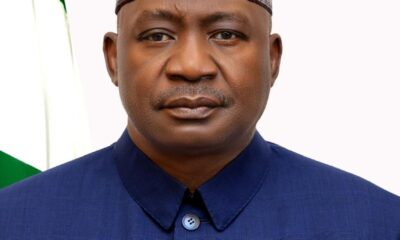
 Analysis6 days ago
Analysis6 days agoInsecurity: Defence, Development, and Duty, by Alabidun Shuaib AbdulRahman
-

 News5 days ago
News5 days agoTwo Dead, Nine Injured in Brown University Shooting
-
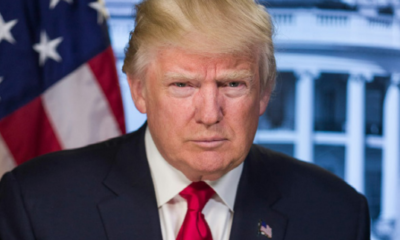
 News5 days ago
News5 days agoTrump Reacts as ISIS Kills Three Americans in Syria
-

 News5 days ago
News5 days agoBondi Beach Attack: 15 Dead, Father-Son Gunmen Behind Shooting









